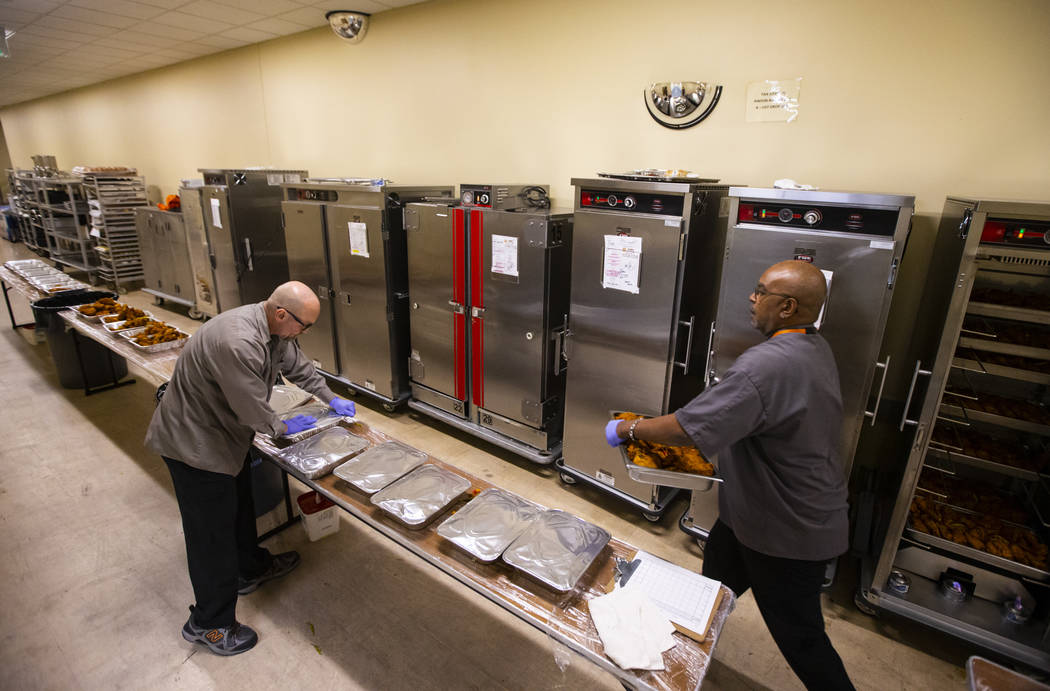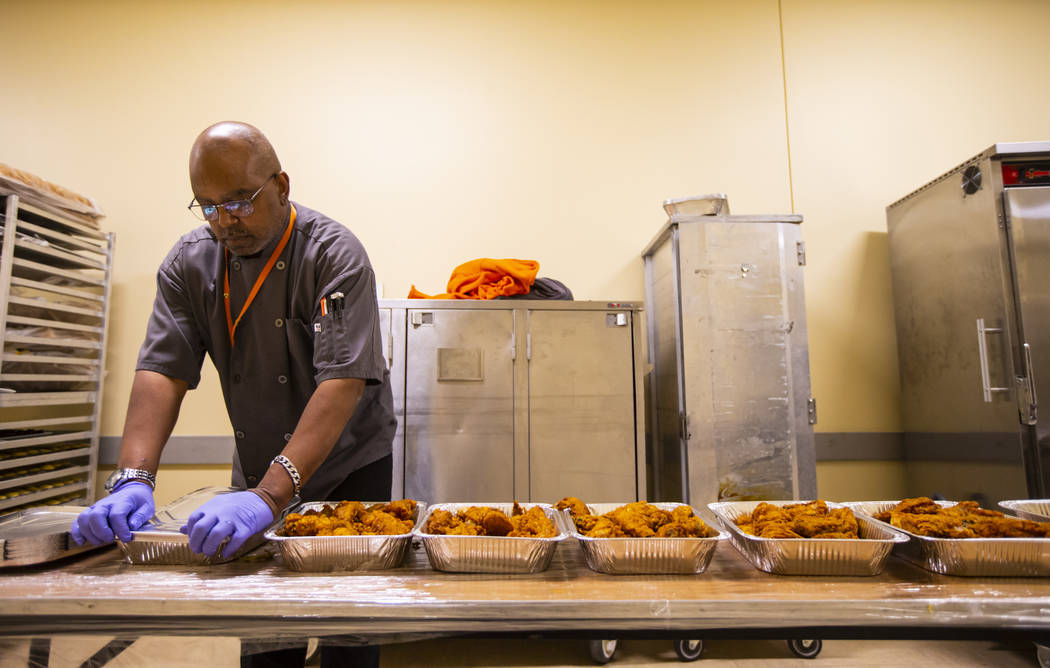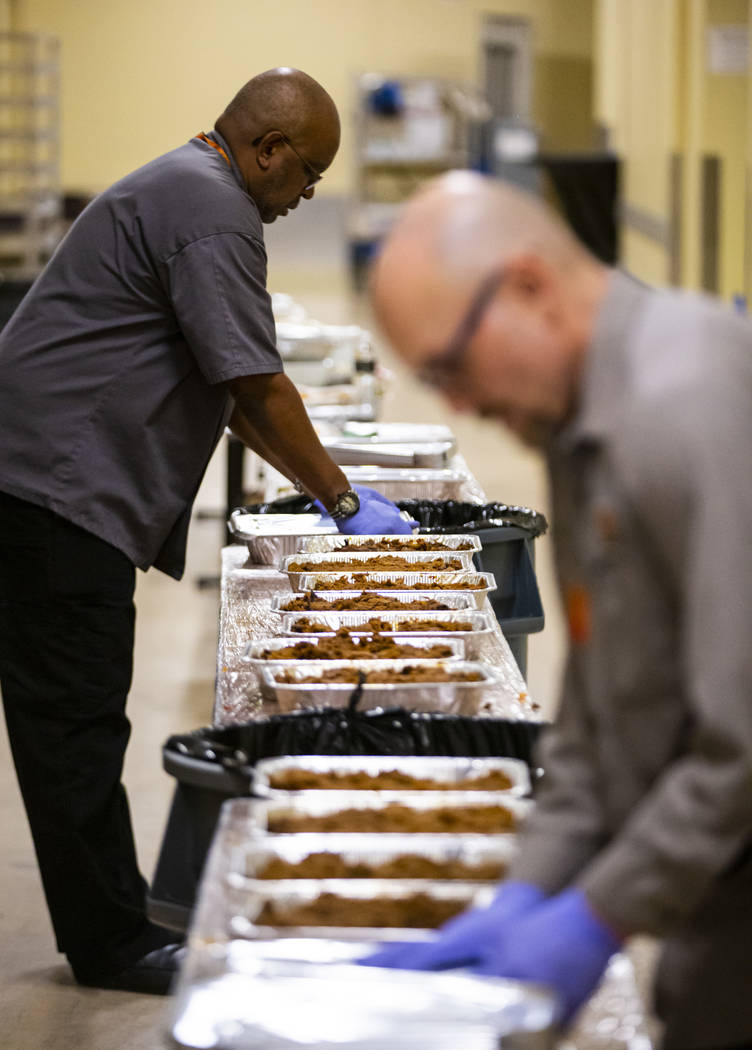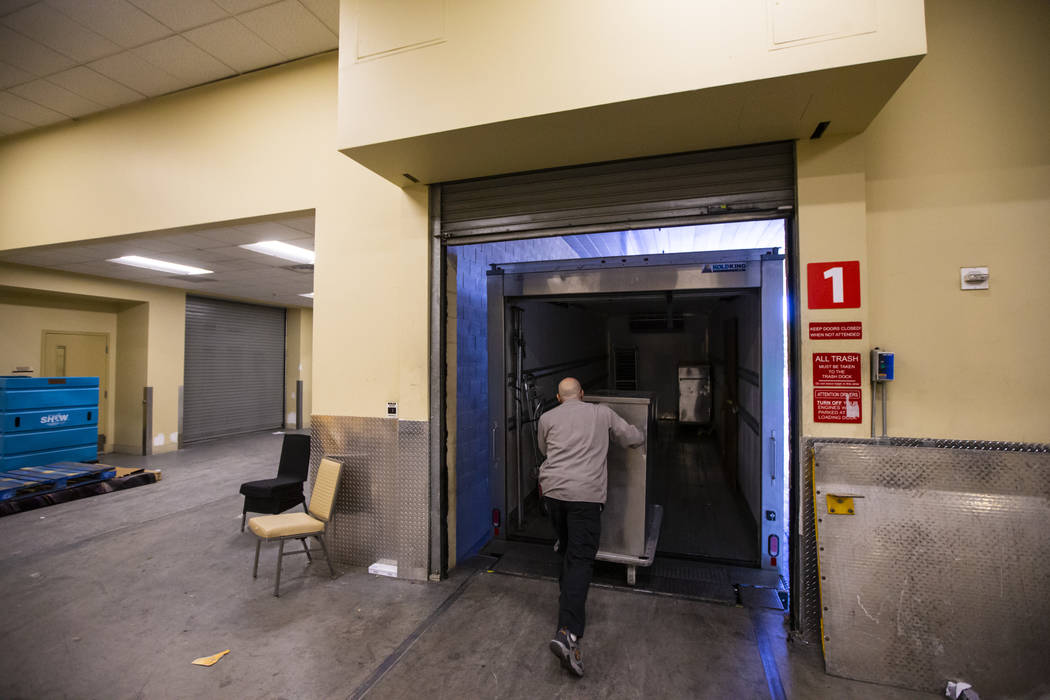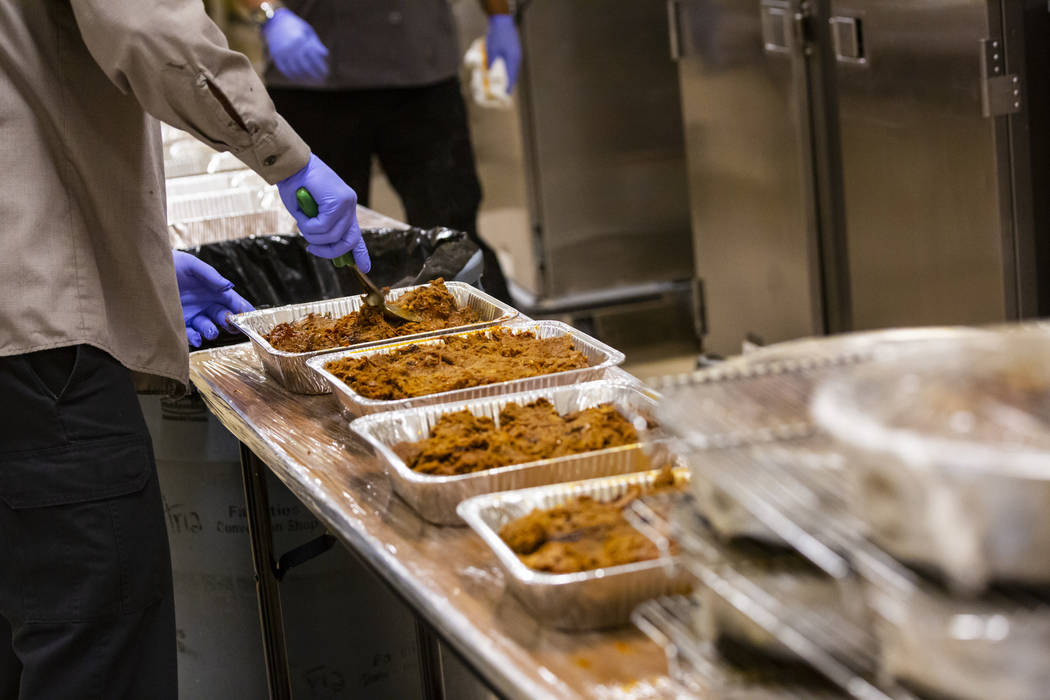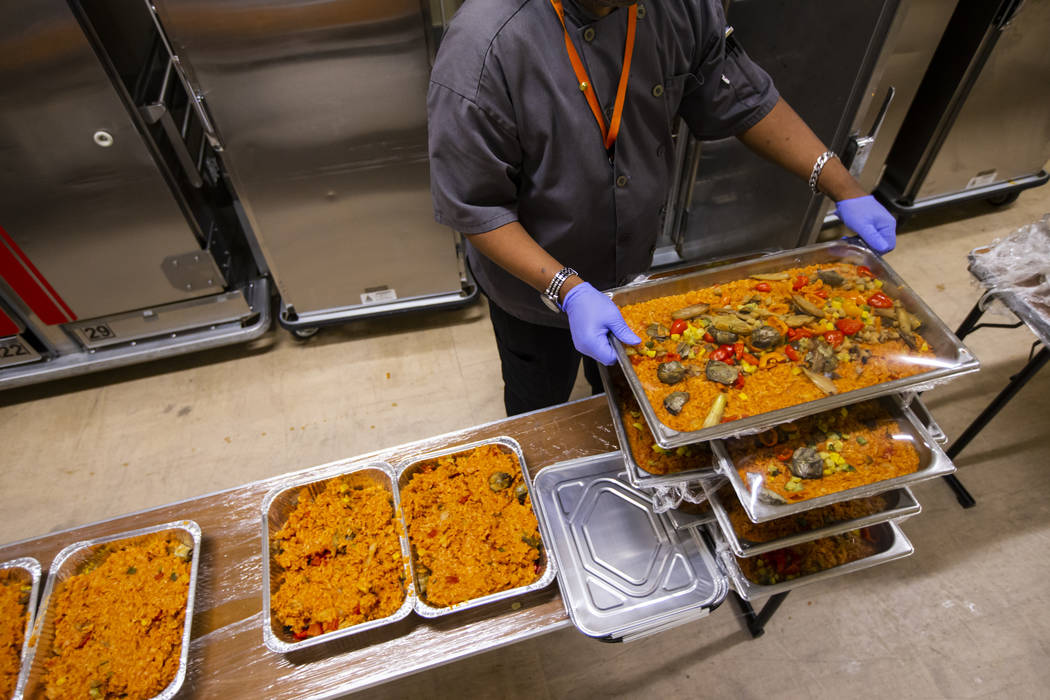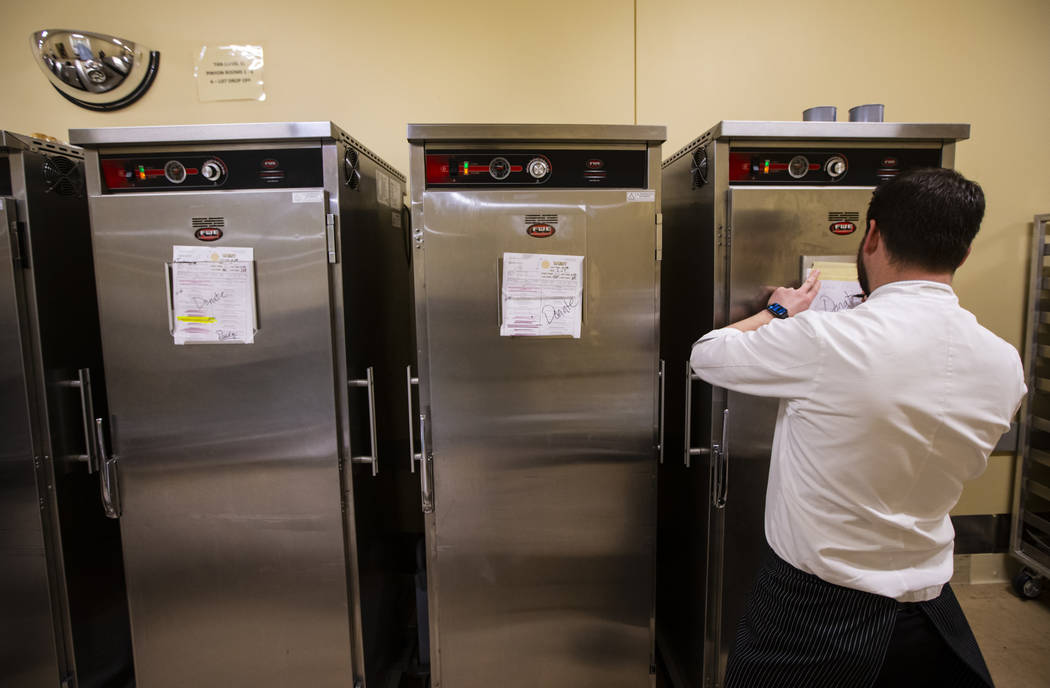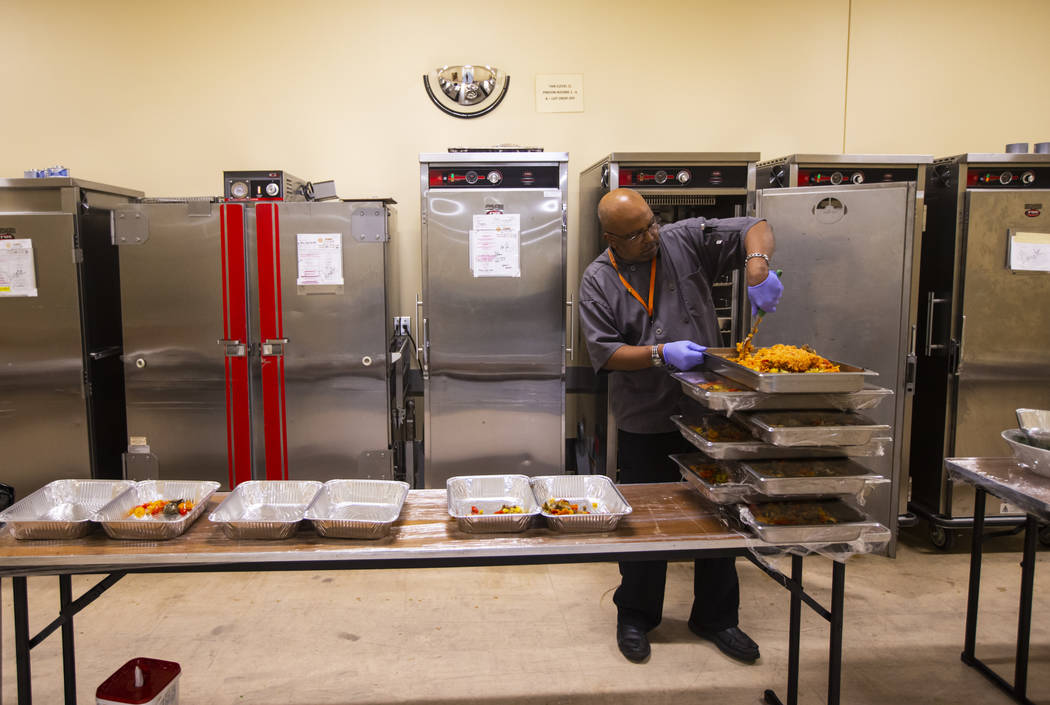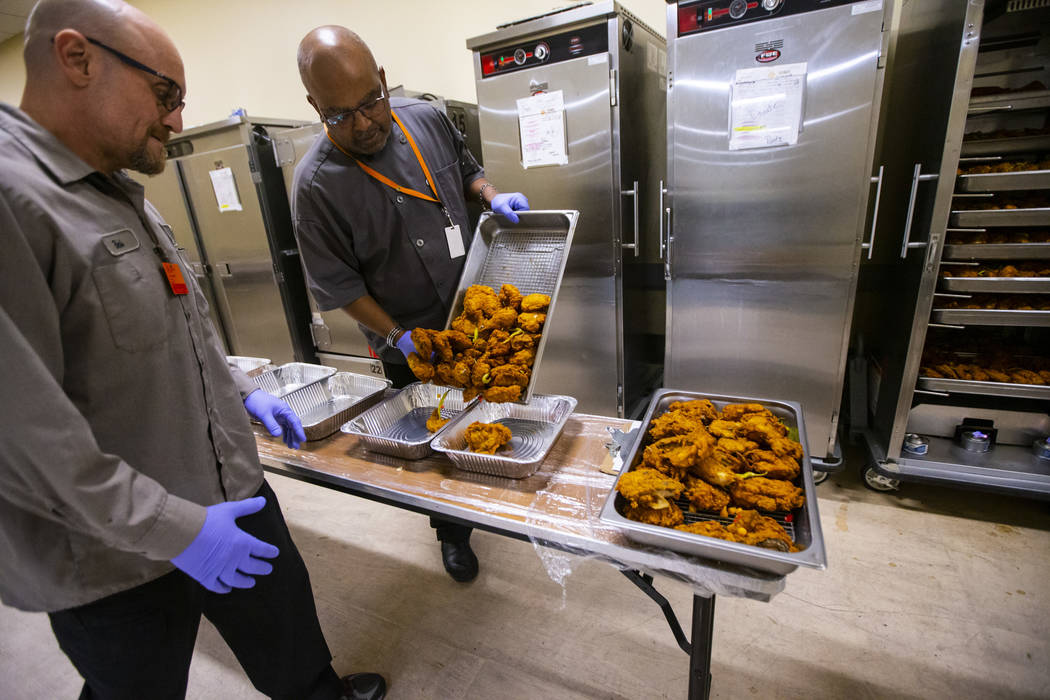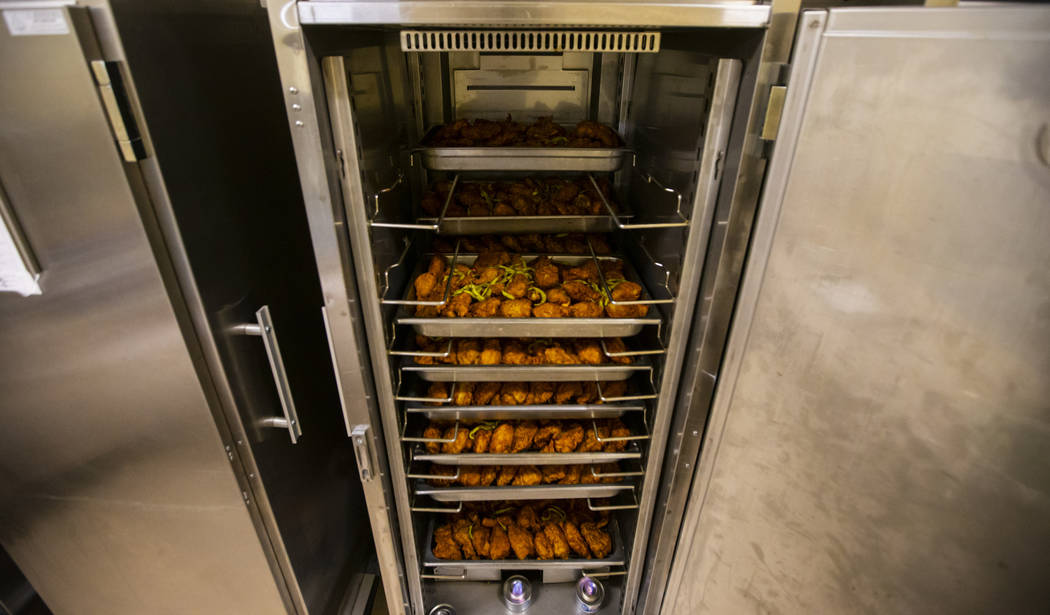Sands, MGM Resorts recognized for efforts to reduce food waste
Whether they’re turning unused bread from conventions into dessert or sending food scraps to pig farms, Las Vegas casino operators are getting crafty at figuring out ways to reduce food waste.
It’s an essential step for two Las Vegas-based companies that have been named U.S. Food Loss and Waste 2030 Champions, a title that comes with a commitment to reduce food loss and waste by 50 percent by 2030.
Las Vegas Sands Corp. was named a champion Jan. 21 and joins MGM Resorts International, which was named in October 2018.
“Wasted food is a growing problem in our modern society and an untapped opportunity,” said Katarina Tesarova, senior vice president of global sustainability for Sands. “Reducing wasted food is a triple win. It’s good for the business, for communities and for the environment.”
‘Critical’ donations
The Environmental Protection Agency found food products make up 22 percent of all municipal solid waste sent to U.S. landfills, making them the third-largest source of human-related methane emissions in the country.
The champions program, spearheaded by the EPA and the Department of Agriculture, hopes to alleviate this issue with the help of large corporations. General Mills, Hello Fresh, The Wendy’s Co., Hilton and Kroger are among the companies that have taken up the challenge.
“Large companies like ours owe everything to the communities in which we operate,” said MGM spokeswoman Callie Driehorst. “That means committing to more than just serving customers and bottom lines. If we’re not lifting communities with us, then we’re not succeeding.”
Both Sands and MGM have taken a number of steps to cut back on waste.
For example, the two companies have been donating unserved banquet food to Three Square Food Bank for a number of years.
“They are each critical food donors,” said Larry Scott, COO of Three Square.
The food bank flash freezes the donations into family-sized portions and hands them off to agencies like the Salvation Army to distribute to people in Southern Nevada.
Scott said the resorts’ donations do not make up a large percentage of the meals served, but their nutritional value is extraordinarily high, since each meal typically includes a protein, starch, fruits and vegetables.
It’s a “wonderful mix” of food, he said, especially since Three Square doesn’t often get the chance to collect meat like chicken, steak and fish.
“The meat protein is a wonderful luxury,” Scott said. “We’re always trying to encourage (resorts) to make sure surplus banquet food ends up in people’s mouths instead of landfills.”
Creative solutions
Both companies also send kitchen prep waste and post-consumer food waste to a local pig farm north of Las Vegas.
Sands converts another portion of food waste into fertilizer and turns used kitchen oil into biofuel. The company also came up with “smart recipes” that use unserved food from one day in a dish for the next day — such as turning unserved bread from conventions into bread pudding for team members.
MGM has been working on this issue for more than a decade. Since 2008, it has diverted more than 200,000 tons of food waste from landfills through efforts such as food donations, composting and livestock and industrial uses.
As of November, the company had donated more than 1 million meals through its “Feeding Forward” program, which shares unserved food from conventions, minibars and warehouses with with people confronting hunger in Southern Nevada.
“We are taking something we excel at — serving meals at major meetings and events with thousands of attendees — and applying the same large-scale infrastructure and expertise to feeding people in the community,” Driehorst said. “It’s the perfect marriage of service to our customers and service to our community.”
These actions could be a boon to both companies. The USDA estimates that retailers and consumers waste more than $161 billion of food each year.
Food waste “has tremendous economic, social and environmental consequences,” Tesarova said. Reducing waste is “one of the most important efforts to reduce carbon emissions … (and) is a very relevant issue for the hospitality industry.”
The Review-Journal is owned by the family of Las Vegas Sands Corp. Chairman and CEO Sheldon Adelson.
Contact Bailey Schulz at bschulz@reviewjournal.com or 702-383-0233. Follow @bailey_schulz on Twitter.



